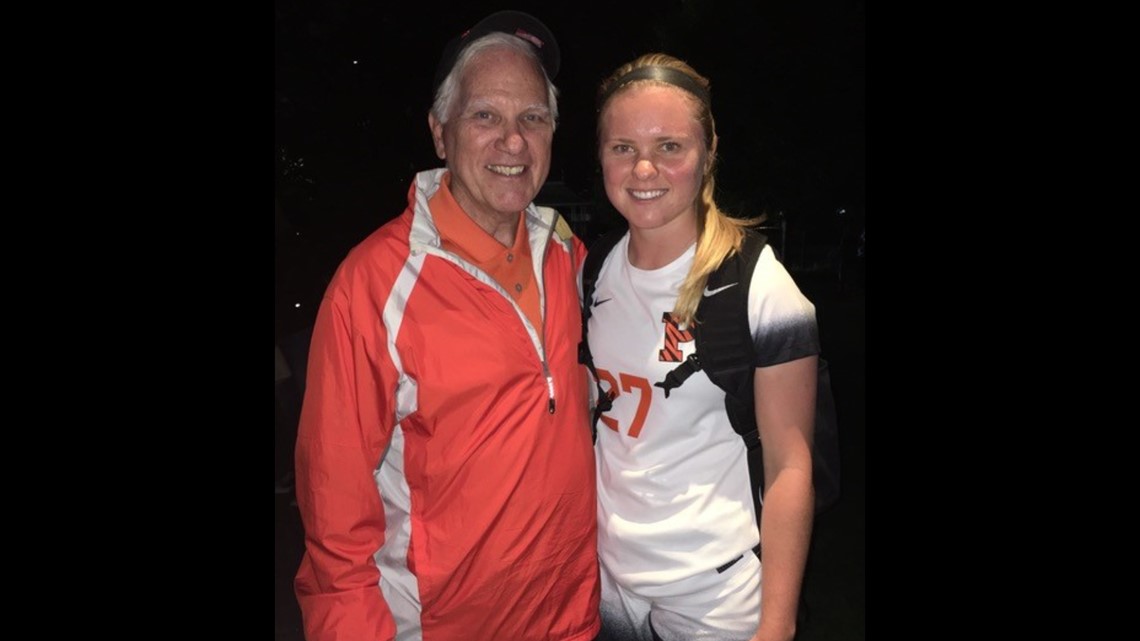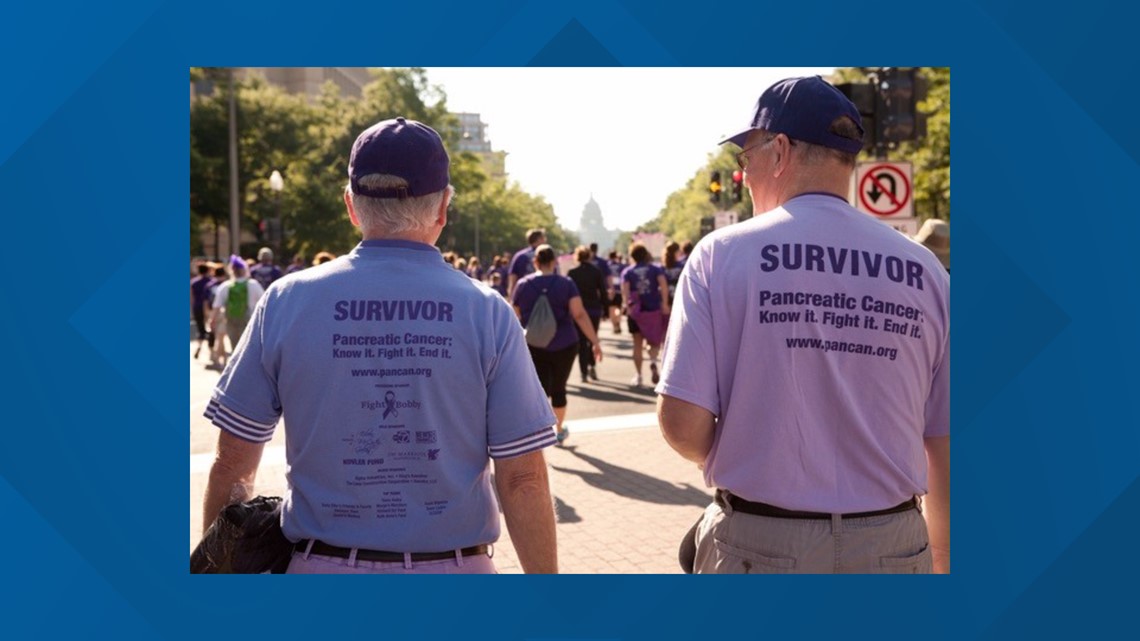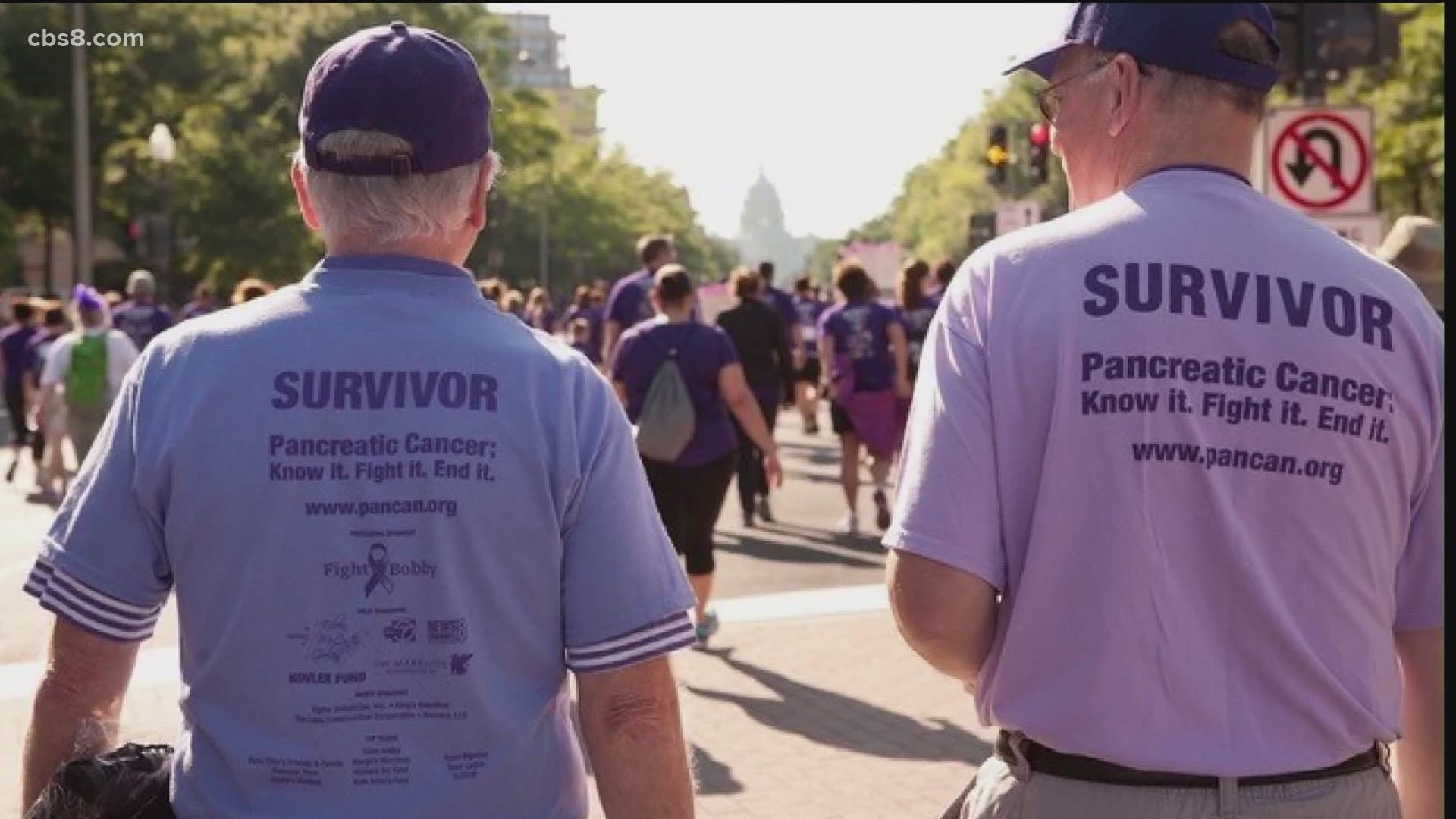SAN DIEGO — November is Pancreatic Awareness Month and Thursday marks World Pancreatic Cancer Awareness Day.
In 2020, the disease took the lives of Jeopardy host Alex Trebek and Supreme Court Justice Ruth Bader Ginsburg.
Experts say one of the big reasons it's so deadly is because most people don't catch it early.
"I remember saying a prayer every night thanking God for letting me live for this day and then saying a prayer every morning for letting me wake up," said Stu Rickerson.
The San Diego resident is a 15-year pancreatic cancer survivor.
Rickerson was diagnosed back in 2005 at the age of 55 years old.
"I think like so many patients, I fell out of my chair. This is devastating news," he said. "Especially back then, when there were fewer treatments available. There was lost hope out there."
Rickerson underwent surgery and spent the next four years of his life very sick, battling the disease, unsure how much time he would have left with his only child, his daughter.
"I would've given an awful lot to see her get through middle school and to see her graduate," he said.


Rickerson is part of the Pancreatic Cancer Action Network (PanCan), an organization that continues to push for more research.
Pancreatic cancer is an extremely difficult disease to diagnose and treat. Experts say by the time its diagnosed its often spread to other parts of the body. According to PanCan, it has a five year survival rate of just 10%.
Besides Trebek and Ginsburg, pancreatic cancer has also taken the lives of Apple co-founder Steve Jobs, and civil rights leader Representative John Lewis.
It also claimed the life of News 8's Larry Himmel back in November of 2014.
"You live a day at a time," said Rickerson.
He not only saw his daughter graduate from high school, he saw her head off to college at Princeton University. He said he doesn't take anything for granted.
"It can come back at any time," he said.
"The challenge for all patients is that we don't know enough. We need to do more research," he added.



